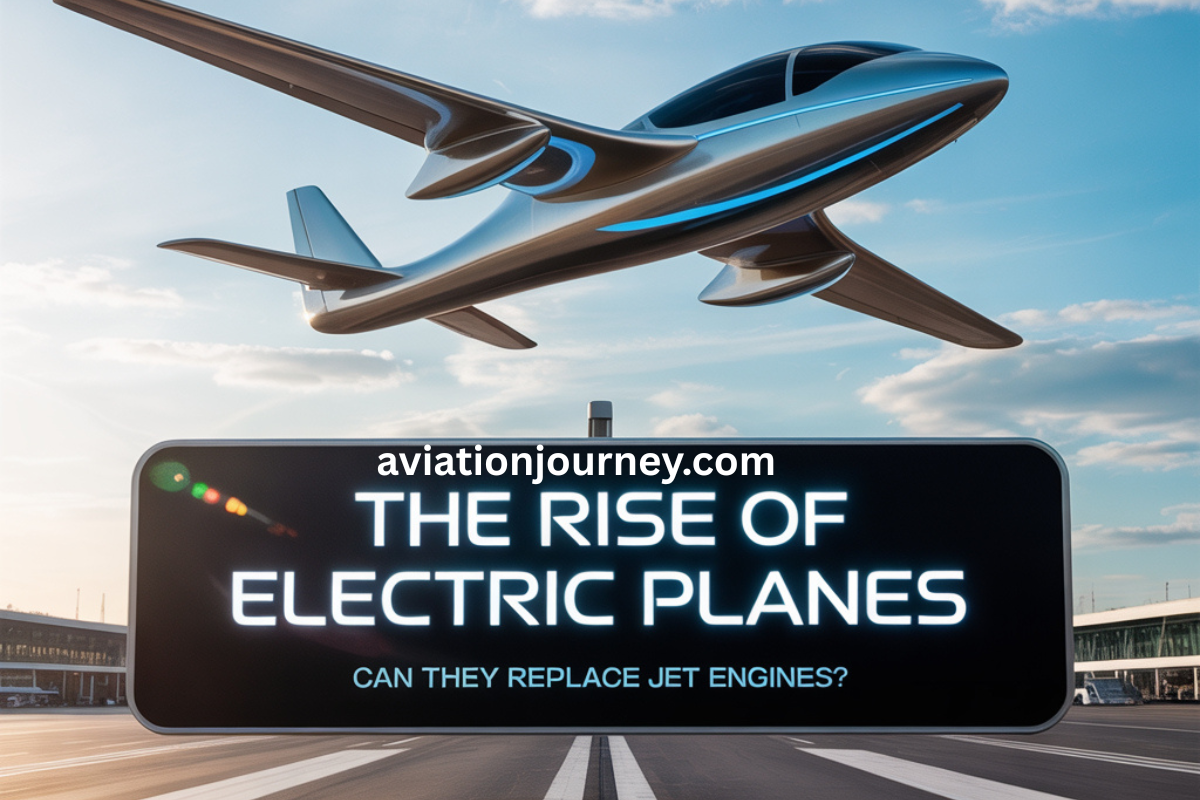The Rise of Electric Planes: Can They Replace Jet Engines?
Aviation is entering a new era. For more than a century, jet engines have powered commercial flights, military aircraft, and private jets. But with climate change concerns and rising fuel costs, the aviation industry is turning its eyes toward a cleaner alternative: electric planes. The question is no longer if electric aircraft will take off—it’s whether they can truly replace traditional jet engines.
Why Electric Planes Are Gaining Attention
Air travel contributes significantly to global carbon emissions, making it a target for innovation. Electric planes promise to cut emissions drastically, reduce noise pollution, and lower fuel costs. Companies like Eviation, Rolls-Royce, and Airbus are investing heavily in electric aviation, developing prototypes that can already fly short regional routes.
In fact, electric planes are not just about sustainability. They also bring lower maintenance costs since electric motors have fewer moving parts than traditional jet engines. For airlines, this means cheaper operations and potentially more affordable tickets for passengers.
Current Limitations of Electric Aircraft
While the potential is exciting, challenges remain. The biggest barrier is battery technology. Jet fuel is far more energy-dense than current lithium-ion batteries. This means electric planes struggle with range, carrying capacity, and flight duration. Most prototypes today can only manage short-haul flights, typically under 500 kilometers.
Charging infrastructure is another obstacle. Airports will need to upgrade their systems to support high-capacity charging stations, which requires significant investment. Until these hurdles are overcome, electric planes are unlikely to replace long-haul jets.
Hybrid Solutions: A Step Between Electric and Jet Power
The transition may not happen overnight. Many experts believe the future lies in hybrid aircraft—planes that combine electric motors with conventional jet engines. This setup can reduce fuel consumption while extending range, making it a realistic bridge toward fully electric aviation.
Companies are already testing hybrid-electric propulsion for regional and cargo flights. If successful, these models could gradually replace smaller jet-powered planes before expanding into larger aircraft categories.
Can Electric Planes Replace Jet Engines?
In the short term, electric planes are unlikely to replace jet engines for intercontinental travel. The energy demands of long-haul flights are simply too great for current battery technology. However, for regional flights, cargo transport, and private aviation, electric planes could become the norm within the next two decades.
The rise of electric planes should be seen as part of a phased transition. Jet engines may continue to dominate long-haul routes, while electric planes take over short distances, reducing aviation’s environmental footprint step by step.
The Future of Sustainable Air Travel
As battery efficiency improves and charging infrastructure expands, electric planes will only become more practical. Governments, airlines, and manufacturers are already collaborating to fast-track this transformation. The goal is clear: to create a cleaner, quieter, and more sustainable aviation industry.
While jet engines will not disappear anytime soon, the rise of electric planes signals a revolution in how we fly. Just like the shift from propellers to jets in the 20th century, electric propulsion could define the future of aviation in the 21st century.

